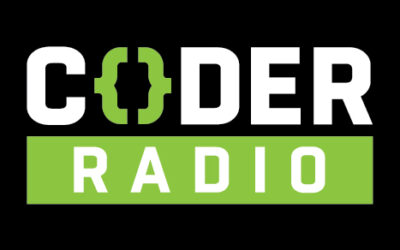I hope that you have all had an awesome New Year’s Eve! I’ve decided that I’ll start off 2014 by making a fool of myself by trying to make some predictions for the tech industry for the new year. This is not a what you will see list, but nor is it a what you won’t see one; in reality, I am trying to focus more on trends than anything else. Overall, 2014 is looking to be a transition year rather than a real game-changer. This is in no way a bad thing and makes sense for where we are in what is usually a twenty year tech cycle; it is important to remember that the mobile revolution is not even half way done and there are still a lot of incremental advancements that need to be made in that area before it can be considered complete. Still, this article will not focus on mobile exclusively but will rather jump around with no other aim than what I find interesting.
Docker: Docker is the darling of the developer community right now and for good reason — it solves a problem that (outside of the BSD community) hasn’t really been properly addressed. There is however a risk of certain segments of the community drinking a little too much of the Koop-Aide and using Docker in ways that it wasn’t intended to be used; just think about what we saw with Rails a few years ago and the hype surrounding that and you will have a good idea of what I am concerned with. Still, at the end of the day Dockery is going to be a major tool in a lot developers’ (including this one’s) toolboxes for 2014 and probably beyond.
Windows 8: In the consumer market, Windows 8’s RT offering is in a lot of trouble — that is undeniable at this point. Windows Phone suffers much the same fate as Windows RT, though Windows Phone does enjoy a good holding in South America and some other parts of the world. Microsoft has already hinted strongly that they plan to merge WinRT and Windows Phone into one mobile operating system alla iOS. This is a great Idea but is several years too late. It also undermines the “one Windows” pitch that Microsoft has been making for Windows 8 over the last few years. In 2014, Microsoft will still be dealing with the fallout of their bumbling launch and marketing of Windows 8.
Azure: Azure has grown far beyond Windows in the cloud and at the close of 2013 is a rival to Amazon Web Services and pretty much every other cloud offering. I’ve used Azure several times myself over the year and am pretty impressed on the whole; there were some bumps in the beginning and middle of the year, but these have largely been addressed and it looks like Microsoft has some ambitious plans for Azure in 2014. Over the last month or so something called Midori has been leaking out of Microsoft and, though the pundits seem to think it is something to do with Windows on the client-side, my bet is that this is some sort of evolution of Microsoft’s cloud offerings. Either way, 2014 is going to be a good year for Microsoft in the cloud and for Azure.
Mac OS X: Twelve months ago it looked like OS X was veering dangerously toward an iOSification that would have proven intolerable for professional users. With Mavericks however Apple has found a good balance between their desire for control and the reality that the pro-market has been driven to OS X due to its being a UNIX system that has a late vendor for support and an attractive user interface. Despite the apparent back peddling, it is important to note that Apple has gotten one major change in the OS and managed to implement it in a way that is both useful to the average consumer and acceptable to the pro users — this feature is called Gatekeeper. In Mavericks, Gatekeeper does not allowed unsigned applications (to sign an application one needs to be an approved Apple developer) to be installed on the system by default. The key is that this is a default that any sophisticated user can change. However, I must admit that I have kept this default. Going forward, Apple’s belief in signed applications (or perhaps some slightly watered-down version of it) makes a lot for sense for the future of computing and I actively support refusing to install unsigned applications from untrusted sources. If the current path holds, Apple will be balancing making OS X simpler for average users and new users who came over due to the halo effect of iOS while balancing the needs of the professional user market.
Ubuntu / Linux: Canonical has done an amazing job of sullying the Ubuntu name over the 2013 and has done little more than make a fool of themselves with their naïve attempt at breaking into the mobile space. Ubuntu will still be a very popular desktop Linux operating system among new Linux users and will continue to be a major player on the server-side. Canonical the company however will fail to monetize their offerings in any significant way. The only ray of hope would be some sort of re-focusing of the company to be an enterprise focused organization much like Red Hat. Even in that case, Canonical will not be able to be a true challenger to Red Hat in 2014 and it is unlikely that they will even decide to try. The continued flailing of Canonical will contribute to a “brain drain” of passionate and talented Linux enthusiasts out of the Ubuntu community and into other Linux communities. Another side of effect this is that desktop Linux will continue to be the proverbial tempest in a teapot that it has always been. This internal discord will guarantee that 2014 will not be the year of the Linux desktop in any significant way.
That’s it! Those are my foolish predictions for 2014 — foolish as they may be, I am pretty confident that most of them will be, if not correct, then on the right track. I know they are not earth shattering and basically boil down to 2014 will more or less maintain the status quo. In a way, that’s a good thing. If we are constantly reinventing new technologies and never refining the technologies we are already have, then we will always be using unstable and half baked first generation technology. Have a happy new year and feel free to comment on Twitter.






